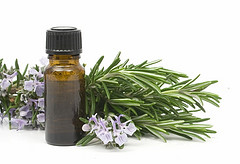
 Essential oils can do wonders to help you relax and reduce stress while you’re going through chemotherapy or radiation, but according to aromatherapy experts, you need to be choosy about which ones you’re using. Some, apparently, have the ability to interfere with cancer treatments.
Essential oils can do wonders to help you relax and reduce stress while you’re going through chemotherapy or radiation, but according to aromatherapy experts, you need to be choosy about which ones you’re using. Some, apparently, have the ability to interfere with cancer treatments.
We posted earlier about how aromatherapy can help with many side effects. Peppermint and ginger ease nausea. Lavender and aloe can soothe radiation burns. Cedarwood can help you sleep. Grapefruit and juniper boost energy. All these are tremendously beneficial in the battle against cancer. However, just because something is natural doesn’t mean it’s inactive. In fact, essential oils can be very powerful-which is why sometimes, they require a little caution.
For example, according to integrative-healthcare.com, peppermint should be avoided by cancer patients on the chemo drug 5FU, as it increases absorption 4-fold. Ginger can reduce clotting time, so though it helps ease nausea, patients need to be cautious when using it in case of excess bleeding.
Other oils can actually cause skin sensitivity to light, so aromatherapists recommend patients about to undergo radiation therapy avoid applying oils like lemon and other citrus oils, bergamot, tagete, verbena, and angelica to the skin. Other oils that can irritate tender skin with or without light exposure include cinnamon, fig leaf, caraway, dill seed, peppermint, and ylang ylang. Skin cancer patients want to be extra cautious when applying oils.
If you’re already tired and want to up your energy, avoid oils that can make you drowsy like hops, marjoram, geranium, valerian, nutmeg, and sandalwood. Oils that have a higher risk of toxicity include bitter almond, sweet birch, arnica, camphor, cassia, bitter fennel, and mustard-don’t apply these to the skin, and use caution when enjoying them in other ways.
Essential oils are proving in studies to truly help relieve cancer side effects like anxiety, depression, sleeplessness, and stress. Most oils and applications are safe enough for patients to use. All it takes is a little education, caution, and advice from your doctor and aromatherapist. A general rule? Keep concentrations of oils low-2 drops per ounce of carrier oil or lotion. And make sure you purchase your oils from a reputable company that produces quality products.
Have you learned how to use aromatherapy during cancer treatments? Please share your story.
Photo courtesy atyourfeetllc via Flickr.com.

